Difference between revisions of "Abraham"
m (Reverted edits by El Vandallo (Talk) to last revision by Mtsinaichurch) |
(→Abrahamic covenant) |
||
| Line 11: | Line 11: | ||
Abram came from the lineage of [[Shem]], who came from [[Noah]]. Abraham was first called Abram. According to Genesis, God called Abram to faith and obedience, calling him to leave his home of [[Ur]], and move to a land that He would show him. Abram, his wife Sarai ([[Sarah]]), and his extended clan then moved to the land of [[Canaan]]. In this land, God promised to bless him and make him a great nation (although Abraham was childless at the time). Trusting this promise, Abram journeyed down to Shechem, then to a spot between Bethel and Ai. He then moved to the oaks of Mamre in Hebron. The Bible tells us that Abraham trusted God, and God credited this to him as righteousness. | Abram came from the lineage of [[Shem]], who came from [[Noah]]. Abraham was first called Abram. According to Genesis, God called Abram to faith and obedience, calling him to leave his home of [[Ur]], and move to a land that He would show him. Abram, his wife Sarai ([[Sarah]]), and his extended clan then moved to the land of [[Canaan]]. In this land, God promised to bless him and make him a great nation (although Abraham was childless at the time). Trusting this promise, Abram journeyed down to Shechem, then to a spot between Bethel and Ai. He then moved to the oaks of Mamre in Hebron. The Bible tells us that Abraham trusted God, and God credited this to him as righteousness. | ||
| − | |||
| − | |||
| − | |||
| − | |||
| − | |||
| − | |||
| − | |||
| − | |||
| − | |||
| − | |||
| − | |||
| − | |||
| − | |||
| − | |||
| − | |||
| − | |||
==Quotes== | ==Quotes== | ||
Latest revision as of 17:39, 12 December 2010
| Abraham | |
| RELATED TOPICS | |
| SERMONS, ESSAYS AND OPINIONS |
|
| CONTENTS | |
Abraham was a major figure in the Old Testament. He is considered the father of the Jewish people. The account of his life is found in the Book of Genesis, beginning in Chapter 11. In the New Testament Abraham is mentioned prominently as a man of faith and the apostle Paul uses him as an example of salvation by faith.
Abram came from the lineage of Shem, who came from Noah. Abraham was first called Abram. According to Genesis, God called Abram to faith and obedience, calling him to leave his home of Ur, and move to a land that He would show him. Abram, his wife Sarai (Sarah), and his extended clan then moved to the land of Canaan. In this land, God promised to bless him and make him a great nation (although Abraham was childless at the time). Trusting this promise, Abram journeyed down to Shechem, then to a spot between Bethel and Ai. He then moved to the oaks of Mamre in Hebron. The Bible tells us that Abraham trusted God, and God credited this to him as righteousness.
Quotes
Links
Return to Christianity -> Bible -> Bible Characters Index
